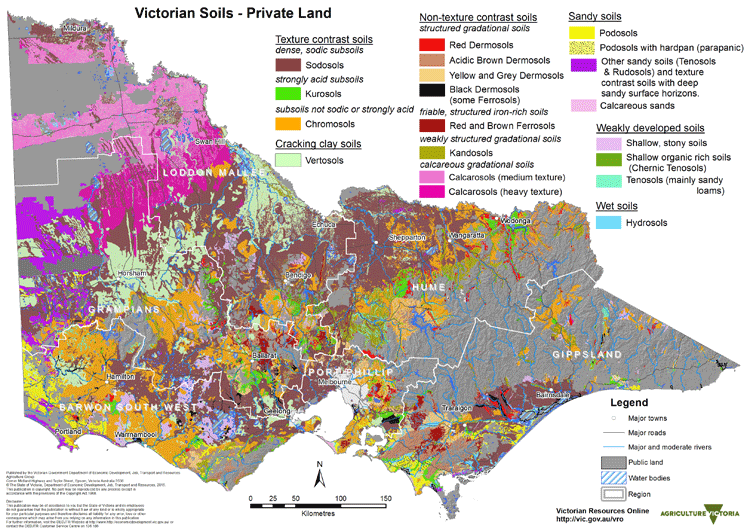Victorian Soils on Private Land
Back to: Meat and Wool Industry homepage
Across Victoria’s grazing regions there is a great diversity of soil types that reflect differences in parent material, topography, climate, biological activity and age (e.g. degree of weathering). These different soil types have a range of physical and chemical characteristics (e.g. structure, drainage, depth, pH, sodicity) that impact on management. The map of Victorian Soils on Private Land presented here is a statewide overview that displays the dominant Soil Orders using the Australian Soil Classification (Isbell, 2002).

High resolution version of this maps is available to download - (PDF - 6.5 MB)
| Loddon Mallee | Hume |
| Grampians | Gippsland |
| Barwon South West | Port Phillip |
The high resolution PDF file provided on this page can be viewed using the free Adobe PDF reader, this software can be installed for free from the Adobe website (external link). This PDF is provided with a high level of detail and with the intent that it should be printed at high resolution.
Relevant information elsewhere on VRO website
Trace Elements for Pastures and Animals in Victoria was prepared by W.J Hosking, I.W Caple, C.G Halpin, A.J Brown, D.I Paynter, D.N Conley and P.L North-Coombes of the former Department of Agriculture and Rural Affairs in 1986. This publication provides a review of the then state of knowledge about the role of trace elements in Victorian grazing enterprises.


